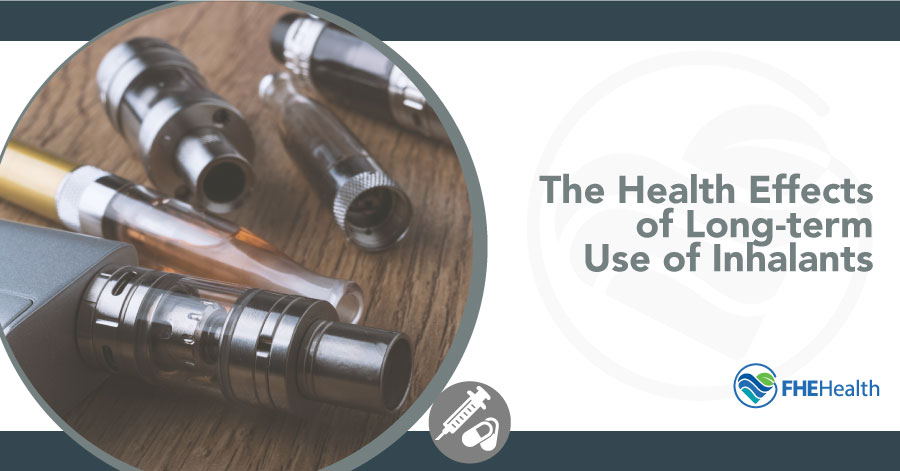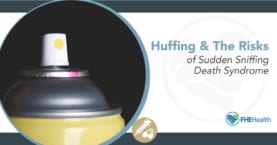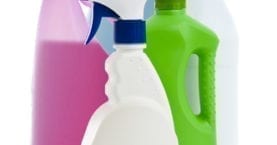
This article has been reviewed for accuracy by our peer review team which includes clinicians and medical professionals. Learn more about our peer review process.
When you’re chasing an instant high where the effects take hold in just a few seconds, you may decide to try an inhalant. You’ll experience a short-term head rush and a sense of temporary relaxation. Inhalants are readily accessible, as they often come in the form of everyday household products. Sniffing or huffing an inhalant is quick, and there’s no paraphernalia required, unlike with many other drugs.
Inhalant abuse can go unnoticed because the substances used are commonplace and the effects are often short-lived. Even the use of poppers may go undetected for a significant period because the user doesn’t need to conceal these alkyl nitrate “air fresheners” that appear unassuming and harmless. However, over the long term, daily inhalant use can result in serious consequences for your physical and mental health.
What Are Inhalants?
The term inhalants refers to a group of substances that are solely used via inhalation, typically in a manner that was never intended by the product manufacturers. Inhalants can include:
Solvents
Solvents such as paint thinner, glue, gasoline, marker fluid, lighter fluid, or dry-cleaning fluids may be used as inhalants.
Nitrates
Nitrates can include liquids that give off vapors such as leather cleaners, liquid aromas, diffuser scents, and room deodorizers.
Aerosol Sprays
Aerosols are in many household products, such as hairspray, deodorant sprays, cooking oil sprays, and spray paint.
Gases
Gases may include nitrous oxide found in whipped cream dispensers, as well as propane tanks, lighters, and refrigerants.
Inhalants can be sourced from many items found in a typical household that most people wouldn’t view as a drug because the product was never intended to cause a high. Despite the lack of manufacturer intention, individuals using these products as drugs experience psychoactive effects as a result of inhaling the combination of chemicals.
Using inhalants may be referred to as snorting, huffing, or sniffing, but in all cases, the drug is experienced via inhalation of a vaporized substance.
How Popular Are Inhalant Drugs?
Inhalant use is prevalent among teens and adolescents because these products are so readily accessible. According to 2015 data, approximately 1.8 million people aged 12 and older reported using inhalants in the past year. The use of inhalants among teens is thought to be more common in households or communities that are “dry,” meaning there’s no access to alcohol. Young people might be more inclined to experiment with alcohol instead if it were available.
What Are the Short-Term Effects of Inhalants?
The short-term effects of inhalants are the desired high that individuals get from using these products. These effects can include:
- Euphoria
- Hallucinations
- Dizziness
- Uncoordinated bodily movement
- Slurred speech
Drowsiness, vomiting, and headaches are some of the less desirable short-term effects a person may experience when using inhalants.
Long-Term Effects of Daily Inhalant Use
Daily inhalant use can result in serious long-term effects on a person’s health and well-being. Some of these effects can manifest as:
- Hearing loss
- Liver or kidney damage
- Nerve damage resulting in poor coordination and muscle spasms
- Stunted behavioral developments (due to brain damage in younger people)
- Bone marrow damage
It’s important to note that inhalants are often used to enhance sexual pleasure, which could lead to unsafe sexual practices and unprotected sex. Consequences of this may include:
- Unplanned pregnancy
- HIV/AIDS
- Hepatitis
- Other sexually transmitted illnesses
Prolonged and repeated use of inhalants may result in addiction to the substances, and individuals who try to stop using can go through withdrawal. Symptoms of withdrawal from inhalant use can include:
- Loss of appetite
- Nausea
- Sweating
- Mood changes
- Problems sleeping
Can You Overdose on Inhalants?
Yes, it’s possible to overdose on inhalants — which may surprise some people since a physical substance isn’t being injected or consumed. Too much of an inhalant can be toxic and may result in death or serious neurological damage. Seizures, a comatose state, or heart failure can occur from overdosing on inhalants.
Inhalant overdoses require attention from medical professionals, who will take various steps to rectify the harmful effects of high levels of substance exposure. These might include administering CPR, restarting the heart using a defibrillator, or protecting an individual during a seizure episode. If you or someone you know is exhibiting signs of an overdose, contact emergency responders immediately for help.
How to Recognize Inhalant Abuse
Inhalant abuse can be tricky to spot, especially in the short term. However, if you know the signs to look for, it’s possible to recognize them and support an individual who needs help refraining from substance abuse. Signs of inhalant abuse may include:
- Abnormally large quantities of inhalants stored in the home
- The lingering odor of the substance
- Facial or nasal dryness or burning due to repeated exposure to the chemical
- Nervous system reactions such as tremors
- Mood and anxiety issues not previously observed in the individual
- Nosebleeds
- Conjunctivitis
- Poor personal hygiene
- Changes in psychological behavior
If you notice these changes or behaviors in a loved one and suspect inhalant abuse, there are many ways you can offer support.
Seeking Support for Stopping Inhalant Use
If you’re trying to get off inhalants on your own and are struggling, it’s important to know there are support systems in place to help you through this challenging process. Talk to a trusted loved one or contact a drug addiction treatment facility.
Cognitive behavioral therapy (CBT) is an effective method of managing drug addiction. With CBT, you learn how to recognize harmful thoughts and behavior patterns and make changes to better your life and mental health.
In some cases, you may feel you need the full support of an inpatient addiction detox program. In such a program, you benefit from round-the-clock supervision and attention from medical professionals while overcoming withdrawal symptoms.
At FHE Health, we offer addiction detoxification along with therapy methods to help manage and treat drug addiction. For more information about treatment for inhalant addiction for you or a loved one, contact FHE Health today at (833) 596-3502.









